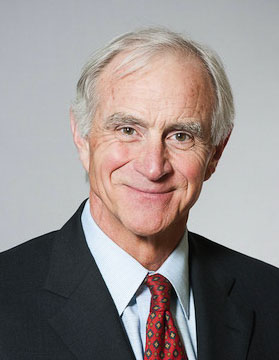
Roger Stark of the Washington Policy Center provides what he believes is evidence of another failure of the government health care safety net
Roger Stark
Washington Policy Center
Medicaid began in 1965 as a government health care safety net for low-income families with children, the disabled, and some people who needed long-term care. Obamacare expanded the entitlement dramatically by allowing states to include any able-bodied, low-income adult ages 18 to 64.

The tragedy is that Medicaid provides low-quality health insurance. Proponents will say that at least enrollees have health insurance, yet it is not fair to force millions of Americans into a poor insurance plan. Many studies, including the randomized, controlled study from Oregon, have shown Medicaid is no better than and, in many cases, worse than not being insured. Supporters of Medicaid argue that Medicaid patients are sicker than other patients when they enroll.
The Oregon study, however, compared thousands of patients with similar health and socio-economic backgrounds. The researchers found the uninsured actually did better clinically than those enrolled in Medicaid. (here)
As an entitlement, Medicaid discourages work. It also discourages a worker from advancing to a better paying job and earning too much money to qualify for free health care. Medicaid has a “crowd-out” effect on private insurance. Once health insurance is offered for free, or at minimal cost to the consumer, people make the logical economic decision to switch to taxpayer-provided insurance.
Most recently, data now reveals that the Medicaid population is much less likely to be vaccinated against the COVID-19 virus. (here) Depending on the specific area of the country, Medicaid enrollees have a vaccination rate of only 30 percent to 60 percent of other people in the same location. The vaccination rate numbers are clearly another indication that Medicaid is a poor-quality health insurance plan.
Multiple reasons for this low rate of vaccination are proposed. The critical issue, however, is that American taxpayers are forced to pay hundreds of billions of dollars every year to fund this low-quality health insurance entitlement. Medicaid spending was $613 billion in 2019 and increases significantly virtually every year. (here)
Medicaid spending is unsustainable. Rather than simply throwing more money at the entitlement, government officials must reform Medicaid and return it to an effective, true safety-net program. (here)
Roger Stark is a senior fellow and director of the Center for Health Care at the Washington Policy Center.





How about taking private for profit companies out of the health care system? Why do we allow the size of your income dictate the quality of medical care you get?
Seems to me that if there weren’t a bunch of private companies getting fat off government Medicare’s dollars and the system was run as a publicly owned utility company (like the Clark County PUD) we might see a real return on our Medicare dollars investment?
Cut Medicare, reform Medicare, blah blah blah. It’s all politicians (Both parties) and experts say. It’s lip service and a bunch of malarkey. They all are interested in keeping the private Healthcare lobby happy. Not looking for what’s good for the citizens of this country.
So please tell us how you’d make it better instead of just pointing out what’s not working.
#1 to make it better is closing the USA border. A couple million a year more poor families thrown into the systems can not be sustained.
#2 to make it better is to radically change America’s diet. The epidemic of obesity is a health crisis.